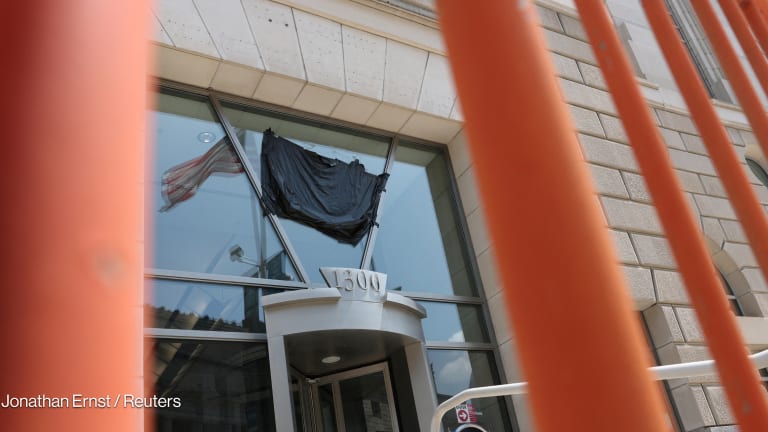In one of his first moves as president of the U.S. Institute of Peace, Nate Cavanaugh — a 28-year-old working with the Department of Government Efficiency, or DOGE — is ridding the organization of its Washington, D.C. headquarters.
“I have determined that USIP no longer needs the property,” wrote Cavanaugh in an undated letter to the U.S. General Services Administration, the entity that manages federal buildings.
The letter came after employees across USIP received termination notices on Friday, with workers given until April 7 to clear out their desks. There were 300 staff employed at USIP, an independent nonprofit organization funded primarily by Congress — and as of Friday night, nearly every one of those staff members have been terminated.








